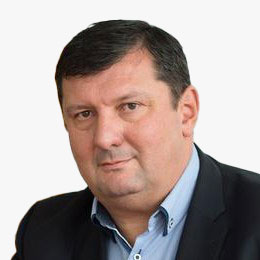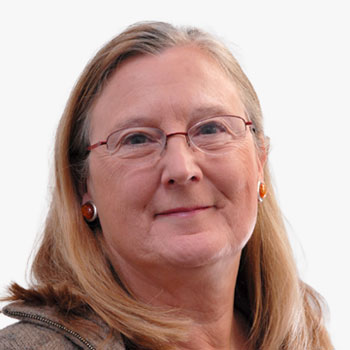
John Kedar
Strategic Advisor, Geospatial Infrastructure and Agencies | Geospatial World | UK
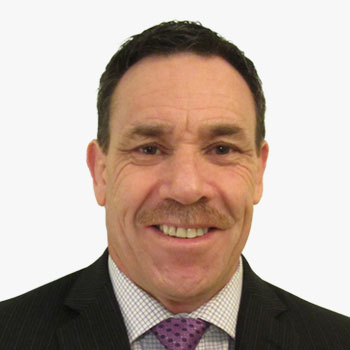

David Henderson
Chief Geospatial Officer | Ordnance Survey | UK

Dr. Michael Tischler
Director of the National Geospatial Program (NGP) | U.S Geological Survey (USGS) | USA


Ms. Mari Khardziani is Head of International Relations Service at National Agency of Public Registry (NAPR) under Ministry of Justice of Georgia, in charge of international relations and coordination/management of international projects. In 2016-2022, she was the local project manager of the Norwegian projects, and was involved the IGIF project implemented with the Norwegian support in Georgia. From 2016 till April, 2023 she was also a member of UNECE WPLA Bureau.
After working in private sector for several years, in 2004 she moved to NAPR - a government agency responsible for land administration, business registry, geodesy, mapping, address registry and the National Coordinator for development of National Spatial Data Infrastructure (NSDI) in Georgia. At NAPR, she worked at different positions, including over 14 years at managerial position. Being at NAPR since its foundation, she was involved in implementation of the reforms and nationwide projects, including land administration and geospatial spheres. Her top skills and competences cover international relations, organizational leadership/management, strategic planning, communication, project management and land administration.
Ms. Khardziani holds BA in English and the Master's degree in Public Administration (MPA) from Georgian Institute of Public Affairs (GIPA).
Mari Khardziani
 Mari Khardziani
Head of International Relations Service , National Agency of Public Registry , Georgia
Mari Khardziani
Head of International Relations Service , National Agency of Public Registry , Georgia
Ms. Mari Khardziani is Head of International Relations Service at National Agency of Public Registry (NAPR) under Ministry of Justice of Georgia, in charge of international relations and coordination/management of international projects. In 2016-2022, she was the local project manager of the Norwegian projects, and was involved the IGIF project implemented with the Norwegian support in Georgia. From 2016 till April, 2023 she was also a member of UNECE WPLA Bureau.
After working in private sector for several years, in 2004 she moved to NAPR - a government agency responsible for land administration, business registry, geodesy, mapping, address registry and the National Coordinator for development of National Spatial Data Infrastructure (NSDI) in Georgia. At NAPR, she worked at different positions, including over 14 years at managerial position. Being at NAPR since its foundation, she was involved in implementation of the reforms and nationwide projects, including land administration and geospatial spheres. Her top skills and competences cover international relations, organizational leadership/management, strategic planning, communication, project management and land administration.
Ms. Khardziani holds BA in English and the Master's degree in Public Administration (MPA) from Georgian Institute of Public Affairs (GIPA).

Ms. Mari Khardziani is Head of International Relations Service at National Agency of Public Registry (NAPR) under Ministry of Justice of Georgia, in charge of international relations and coordination/management of international projects. In 2016-2022, she was the local project manager of the Norwegian projects, and was involved the IGIF project implemented with the Norwegian support in Georgia. From 2016 till April, 2023 she was also a member of UNECE WPLA Bureau.
After working in private sector for several years, in 2004 she moved to NAPR - a government agency responsible for land administration, business registry, geodesy, mapping, address registry and the National Coordinator for development of National Spatial Data Infrastructure (NSDI) in Georgia. At NAPR, she worked at different positions, including over 14 years at managerial position. Being at NAPR since its foundation, she was involved in implementation of the reforms and nationwide projects, including land administration and geospatial spheres. Her top skills and competences cover international relations, organizational leadership/management, strategic planning, communication, project management and land administration.
Ms. Khardziani holds BA in English and the Master's degree in Public Administration (MPA) from Georgian Institute of Public Affairs (GIPA).
Head of International Relations Service | National Agency of Public Registry | Georgia


Dr Lesley Arnold is Director and owner of consulting firm Geospatial Frameworks. As principal consultant, she works with governments to develop strategies, policies and implementation plans for geospatial information reform, open data initiatives and geospatial innovation, globally. Examples of her work include Cadastre 2034, and Elevation and Depth 2030 strategies for the Australian Government, and SDI Strategy for the Government of Sri Lanka.
Lesley also works with the United Nations, FAO and World Bank supporting countries to strengthen their geospatial information management capabilities towards implementing the 2030 Agenda for Sustainable Development. She is one of the lead authors of the UN-GGIM Integrated Geospatial Information Framework (IGIF), and has developed IGIF educational materials, Webinars and conducted IGIF training and mentoring.
Previously, Lesley was Director at Landgate responsible for Western Australia's (WA) geographic, aerial photography and satellite remote sensing programs, and the delivery of products and services through Landgate's Shared Location Information Platform.
Lesley has held several executive positions on intergovernmental committees, and is currently Non-Executive Director for AuScope, and the Australian Urban Research Infrastructure Network (AURIN), and Board Member for Geoscience Australia's Location Program. Lesley is also Adjunct Associate Professor at Curtin University WA, where she co-supervises PhD Students. Her research interests include the future Geospatial Information Ecosystem, spatial data supply chains and automated updating.
Dr. Lesley Arnold
 Dr. Lesley Arnold
Director , Geospatial Frameworks Pty Ltd , Australia
Dr. Lesley Arnold
Director , Geospatial Frameworks Pty Ltd , Australia
Dr Lesley Arnold is Director and owner of consulting firm Geospatial Frameworks. As principal consultant, she works with governments to develop strategies, policies and implementation plans for geospatial information reform, open data initiatives and geospatial innovation, globally. Examples of her work include Cadastre 2034, and Elevation and Depth 2030 strategies for the Australian Government, and SDI Strategy for the Government of Sri Lanka.
Lesley also works with the United Nations, FAO and World Bank supporting countries to strengthen their geospatial information management capabilities towards implementing the 2030 Agenda for Sustainable Development. She is one of the lead authors of the UN-GGIM Integrated Geospatial Information Framework (IGIF), and has developed IGIF educational materials, Webinars and conducted IGIF training and mentoring.
Previously, Lesley was Director at Landgate responsible for Western Australia's (WA) geographic, aerial photography and satellite remote sensing programs, and the delivery of products and services through Landgate's Shared Location Information Platform.
Lesley has held several executive positions on intergovernmental committees, and is currently Non-Executive Director for AuScope, and the Australian Urban Research Infrastructure Network (AURIN), and Board Member for Geoscience Australia's Location Program. Lesley is also Adjunct Associate Professor at Curtin University WA, where she co-supervises PhD Students. Her research interests include the future Geospatial Information Ecosystem, spatial data supply chains and automated updating.

Dr Lesley Arnold is Director and owner of consulting firm Geospatial Frameworks. As principal consultant, she works with governments to develop strategies, policies and implementation plans for geospatial information reform, open data initiatives and geospatial innovation, globally. Examples of her work include Cadastre 2034, and Elevation and Depth 2030 strategies for the Australian Government, and SDI Strategy for the Government of Sri Lanka.
Lesley also works with the United Nations, FAO and World Bank supporting countries to strengthen their geospatial information management capabilities towards implementing the 2030 Agenda for Sustainable Development. She is one of the lead authors of the UN-GGIM Integrated Geospatial Information Framework (IGIF), and has developed IGIF educational materials, Webinars and conducted IGIF training and mentoring.
Previously, Lesley was Director at Landgate responsible for Western Australia's (WA) geographic, aerial photography and satellite remote sensing programs, and the delivery of products and services through Landgate's Shared Location Information Platform.
Lesley has held several executive positions on intergovernmental committees, and is currently Non-Executive Director for AuScope, and the Australian Urban Research Infrastructure Network (AURIN), and Board Member for Geoscience Australia's Location Program. Lesley is also Adjunct Associate Professor at Curtin University WA, where she co-supervises PhD Students. Her research interests include the future Geospatial Information Ecosystem, spatial data supply chains and automated updating.
Director | Geospatial Frameworks Pty Ltd | Australia
Part I: Future Users

Marcos Martinez
Secretary General | EAASI | Spain


Thalia is the Director of the Geospatial Commission, which is an independent Expert Committee within the UK Government's Cabinet Office, tasked with advising the government on priorities for improving the UK's location data, running the public sector's key geospatial data contracts and developing and overseeing implementation of the UK's national geospatial strategy. Prior to this, Thalia established and led HM Treasury's digital policy team, where she was responsible for the approach to public spending on digital technology and infrastructure.
Thalia Baldwin
 Thalia Baldwin
Director , Geospatial Commission , UK
Thalia Baldwin
Director , Geospatial Commission , UK
Thalia is the Director of the Geospatial Commission, which is an independent Expert Committee within the UK Government's Cabinet Office, tasked with advising the government on priorities for improving the UK's location data, running the public sector's key geospatial data contracts and developing and overseeing implementation of the UK's national geospatial strategy. Prior to this, Thalia established and led HM Treasury's digital policy team, where she was responsible for the approach to public spending on digital technology and infrastructure.

Thalia is the Director of the Geospatial Commission, which is an independent Expert Committee within the UK Government's Cabinet Office, tasked with advising the government on priorities for improving the UK's location data, running the public sector's key geospatial data contracts and developing and overseeing implementation of the UK's national geospatial strategy. Prior to this, Thalia established and led HM Treasury's digital policy team, where she was responsible for the approach to public spending on digital technology and infrastructure.
Director | Geospatial Commission | UK
Future users’ perspective: through the lens of the uk’s geospatial strategy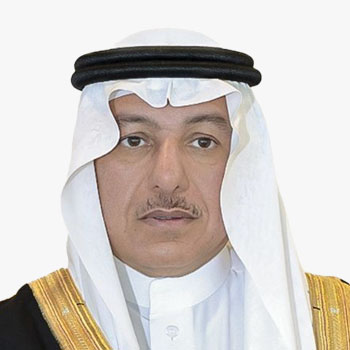
Dr. Bandar Saleh Almuslmani
Advisor to the Minister | Ministry of Environment, Water and Agriculture | Saudi Arabia
Future geospatial ecosystem stakeholders and their role in national development:
Dr. Simon Musaeus
VP, Geospatial Content Solutions | Hexagon | President | EAASI | Spain
Geospatial Ecosystem

2004 - 2011 Cartography studies at the TU Dresden
2011 - 2014 Doctoral studies at the TU Dresden (PhD in 2014)
2014 - 2018 Geodata Manager at swisstopo
2018 - 2020 project manager in railroad construction business
since 2020 Project coordinator at swisstopo
Abstract
Next Generation Map
The rapidly increasing use of mobile devices in the digital and mobile society has led to a wide variety of mobile map applications and a large number of map users (Bartling 2022). Today, mobile map applications are ubiquitous. In particular, the map applications of the major players in this field have fundamentally influenced and changed user requirements. This inevitably leads to a rethinking and reorientation in official cartography to meet the changing user requirements of a mobile society. Globally, a trend is emerging in which the focus of official cartography is increasingly on the flexible and mobile presentation of data, accompanied by a shift away from the production of printed maps. Faced with these challenges and based on internal studies, swisstopo has launched the
Dr. Karsten Pippig
 Dr. Karsten Pippig
Project Coordinator , Federal Office of Topography swisstopo , Switzerland
Dr. Karsten Pippig
Project Coordinator , Federal Office of Topography swisstopo , Switzerland
2004 - 2011 Cartography studies at the TU Dresden
2011 - 2014 Doctoral studies at the TU Dresden (PhD in 2014)
2014 - 2018 Geodata Manager at swisstopo
2018 - 2020 project manager in railroad construction business
since 2020 Project coordinator at swisstopo
Abstract
Next Generation Map
The rapidly increasing use of mobile devices in the digital and mobile society has led to a wide variety of mobile map applications and a large number of map users (Bartling 2022). Today, mobile map applications are ubiquitous. In particular, the map applications of the major players in this field have fundamentally influenced and changed user requirements. This inevitably leads to a rethinking and reorientation in official cartography to meet the changing user requirements of a mobile society. Globally, a trend is emerging in which the focus of official cartography is increasingly on the flexible and mobile presentation of data, accompanied by a shift away from the production of printed maps. Faced with these challenges and based on internal studies, swisstopo has launched the

2004 - 2011 Cartography studies at the TU Dresden
2011 - 2014 Doctoral studies at the TU Dresden (PhD in 2014)
2014 - 2018 Geodata Manager at swisstopo
2018 - 2020 project manager in railroad construction business
since 2020 Project coordinator at swisstopo
Abstract
Next Generation Map
The rapidly increasing use of mobile devices in the digital and mobile society has led to a wide variety of mobile map applications and a large number of map users (Bartling 2022). Today, mobile map applications are ubiquitous. In particular, the map applications of the major players in this field have fundamentally influenced and changed user requirements. This inevitably leads to a rethinking and reorientation in official cartography to meet the changing user requirements of a mobile society. Globally, a trend is emerging in which the focus of official cartography is increasingly on the flexible and mobile presentation of data, accompanied by a shift away from the production of printed maps. Faced with these challenges and based on internal studies, swisstopo has launched the
Project Coordinator | Federal Office of Topography swisstopo | Switzerland
Swisstopo: national geoinformation centre of switzerland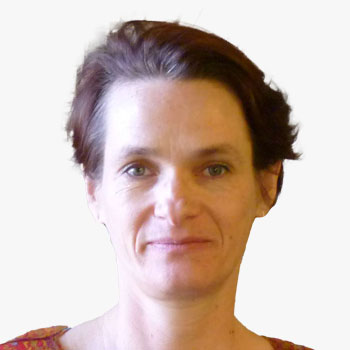
Raphaele Heno
Head of Innovation | IGN | France
Future geospatial ecosystem stakeholders and their role in national development : future users perspectivePart II: Future Digital Ecosystem

Ed Parsons
Geospatial Technologist | Google Inc. | UK


Dr. Jill Saligoe-Simmel is the principal product manager of Geospatial Infrastructure at Esri. She is responsible for product requirements and strategy for modern Spatial Data Infrastructures and INSPIRE. As a Subject Matter Expert, Jill brings 25 years of geospatial technology, governance, and policy-level experience, with substantial involvement in statewide and national NSDI.
Abstract
Geospatial Product Thinking for Knowledge-Based Digital Ecosystems
As stakeholders in future digital ecosystems, we provide the integrated geospatial infrastructure that helps organizations work beyond borders to address shared challenges and achieve common goals. We also cultivate entrepreneurial mindsets, understand geospatial product thinking, and propagate proven good practices that help grow knowledge-based ecosystems. Our shared experiences help us all go further, faster, together.
Dr. Jill Saligoe-Simmel
 Dr. Jill Saligoe-Simmel
Principal Product Manager , Esri , USA
Dr. Jill Saligoe-Simmel
Principal Product Manager , Esri , USA
Dr. Jill Saligoe-Simmel is the principal product manager of Geospatial Infrastructure at Esri. She is responsible for product requirements and strategy for modern Spatial Data Infrastructures and INSPIRE. As a Subject Matter Expert, Jill brings 25 years of geospatial technology, governance, and policy-level experience, with substantial involvement in statewide and national NSDI.
Abstract
Geospatial Product Thinking for Knowledge-Based Digital Ecosystems
As stakeholders in future digital ecosystems, we provide the integrated geospatial infrastructure that helps organizations work beyond borders to address shared challenges and achieve common goals. We also cultivate entrepreneurial mindsets, understand geospatial product thinking, and propagate proven good practices that help grow knowledge-based ecosystems. Our shared experiences help us all go further, faster, together.

Dr. Jill Saligoe-Simmel is the principal product manager of Geospatial Infrastructure at Esri. She is responsible for product requirements and strategy for modern Spatial Data Infrastructures and INSPIRE. As a Subject Matter Expert, Jill brings 25 years of geospatial technology, governance, and policy-level experience, with substantial involvement in statewide and national NSDI.
Abstract
Geospatial Product Thinking for Knowledge-Based Digital Ecosystems
As stakeholders in future digital ecosystems, we provide the integrated geospatial infrastructure that helps organizations work beyond borders to address shared challenges and achieve common goals. We also cultivate entrepreneurial mindsets, understand geospatial product thinking, and propagate proven good practices that help grow knowledge-based ecosystems. Our shared experiences help us all go further, faster, together.
Principal Product Manager | Esri | USA
Geospatial product thinking
Dr. Siva Ravada
Vice President of Development | Oracle | US
Future geospatial ecosystem stakeholders and their role in national development : future digital ecosystem perspective
Albert Momo
Vice President & Executive Director, Emerging Markets and Funded Projects, Trimble | Chair, DEI Committee, World Geospatial Industry Council (WGIC) | USA


Abigail Coholic is the Senior Director of Channel Partnerships at Ecopia AI, a technology company founded with the mission of digitizing the world using AI. Ecopia applies advanced AI technology to mine geospatial imagery, outputting large-scale, GIS professional quality 2D and 3D Land Cover maps. Named by Deloitte as one of the fastest-growing technology companies in North America for the past two consecutive years, and the winner of GWF's Innovation in AI Award in 2022, Ecopia's maps continue to be embedded into hundreds of decision-making applications across over 100 countries around the world
Abigail Coholic
 Abigail Coholic
Senior Director - Channel Partnerships , Ecopia AI , Canada
Abigail Coholic
Senior Director - Channel Partnerships , Ecopia AI , Canada
Abigail Coholic is the Senior Director of Channel Partnerships at Ecopia AI, a technology company founded with the mission of digitizing the world using AI. Ecopia applies advanced AI technology to mine geospatial imagery, outputting large-scale, GIS professional quality 2D and 3D Land Cover maps. Named by Deloitte as one of the fastest-growing technology companies in North America for the past two consecutive years, and the winner of GWF's Innovation in AI Award in 2022, Ecopia's maps continue to be embedded into hundreds of decision-making applications across over 100 countries around the world

Abigail Coholic is the Senior Director of Channel Partnerships at Ecopia AI, a technology company founded with the mission of digitizing the world using AI. Ecopia applies advanced AI technology to mine geospatial imagery, outputting large-scale, GIS professional quality 2D and 3D Land Cover maps. Named by Deloitte as one of the fastest-growing technology companies in North America for the past two consecutive years, and the winner of GWF's Innovation in AI Award in 2022, Ecopia's maps continue to be embedded into hundreds of decision-making applications across over 100 countries around the world
Senior Director - Channel Partnerships | Ecopia AI | Canada
The economics of a successful digital geospatial ecosystem

Dr. Raj Kumar Khatri has served as a member of Indian Administrative Service (IAS) for over 33 years. He worked as Additional Chief Secretary (ACS) Commerce & Industries Department, Education Department, Land Revenue Department, Labor Department in the State of Karnataka, India. He was actively involved in drafting Aerospace Policy and Electric Vehicle (EV) Policy for Karnataka. He was responsible for implementation of infrastructure projects including public private partnership (PPP) basis projects including the expansion of the Bengaluru International Airport. He also administered prudent crisis response during the COVID-19 pandemic.
He has used GIS / Geo Spatial Technologies in various Government Departments such as Urban Development, Agriculture, Land Management. He was a member of think tank constituted by Geospatial World.
Presently he is working with Reliance Jio, the largest telecom company in India that extensively uses GIS.
Dr. Raj Kumar Khatri
 Dr. Raj Kumar Khatri
Principal SCO-Karnataka , Reliance Projects & Property Management Services Ltd.
Dr. Raj Kumar Khatri
Principal SCO-Karnataka , Reliance Projects & Property Management Services Ltd.
Dr. Raj Kumar Khatri has served as a member of Indian Administrative Service (IAS) for over 33 years. He worked as Additional Chief Secretary (ACS) Commerce & Industries Department, Education Department, Land Revenue Department, Labor Department in the State of Karnataka, India. He was actively involved in drafting Aerospace Policy and Electric Vehicle (EV) Policy for Karnataka. He was responsible for implementation of infrastructure projects including public private partnership (PPP) basis projects including the expansion of the Bengaluru International Airport. He also administered prudent crisis response during the COVID-19 pandemic.
He has used GIS / Geo Spatial Technologies in various Government Departments such as Urban Development, Agriculture, Land Management. He was a member of think tank constituted by Geospatial World.
Presently he is working with Reliance Jio, the largest telecom company in India that extensively uses GIS.

Dr. Raj Kumar Khatri has served as a member of Indian Administrative Service (IAS) for over 33 years. He worked as Additional Chief Secretary (ACS) Commerce & Industries Department, Education Department, Land Revenue Department, Labor Department in the State of Karnataka, India. He was actively involved in drafting Aerospace Policy and Electric Vehicle (EV) Policy for Karnataka. He was responsible for implementation of infrastructure projects including public private partnership (PPP) basis projects including the expansion of the Bengaluru International Airport. He also administered prudent crisis response during the COVID-19 pandemic.
He has used GIS / Geo Spatial Technologies in various Government Departments such as Urban Development, Agriculture, Land Management. He was a member of think tank constituted by Geospatial World.
Presently he is working with Reliance Jio, the largest telecom company in India that extensively uses GIS.
Principal SCO-Karnataka | Reliance Projects & Property Management Services Ltd.
Mapping the future of geospatial knowledge – multi-stakeholder perspective

Colin Bray is Head of National Mapping, Tailte Eireann and has been President of EuroGeographics since 2018.
Colin has more than twenty-five years' experience in strategic geospatial information management. He was CEO and Chief Survey Officer, Ordnance Survey Ireland (OSi) from 2013 until its merger with the Property Registration Authority and Valuation Office to form Tailte Eireann.
He holds a Master of Science Degree in Management/Organisational Behaviour, a European Honours degree in Geodetic Engineering, and a Diploma in Geo-Surveying. He was the first Chartered Geomatics Surveyor to become President of the Society of Chartered Surveyors Ireland (SCSI).
Colin Bray
 Colin Bray
CEO, Ordnance Survey Ireland , President, EuroGeographics
Colin Bray
CEO, Ordnance Survey Ireland , President, EuroGeographics
Colin Bray is Head of National Mapping, Tailte Eireann and has been President of EuroGeographics since 2018.
Colin has more than twenty-five years' experience in strategic geospatial information management. He was CEO and Chief Survey Officer, Ordnance Survey Ireland (OSi) from 2013 until its merger with the Property Registration Authority and Valuation Office to form Tailte Eireann.
He holds a Master of Science Degree in Management/Organisational Behaviour, a European Honours degree in Geodetic Engineering, and a Diploma in Geo-Surveying. He was the first Chartered Geomatics Surveyor to become President of the Society of Chartered Surveyors Ireland (SCSI).

Colin Bray is Head of National Mapping, Tailte Eireann and has been President of EuroGeographics since 2018.
Colin has more than twenty-five years' experience in strategic geospatial information management. He was CEO and Chief Survey Officer, Ordnance Survey Ireland (OSi) from 2013 until its merger with the Property Registration Authority and Valuation Office to form Tailte Eireann.
He holds a Master of Science Degree in Management/Organisational Behaviour, a European Honours degree in Geodetic Engineering, and a Diploma in Geo-Surveying. He was the first Chartered Geomatics Surveyor to become President of the Society of Chartered Surveyors Ireland (SCSI).
CEO, Ordnance Survey Ireland | President, EuroGeographics

David Henderson
Chief Geospatial Officer | Ordnance Survey | UK
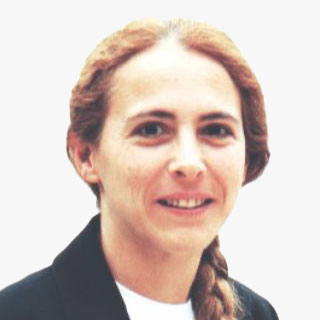
Ingrid vanden Berghe
Administrator-General | National Geospatial Institute | Belgium


Darko Vucetic is a Director for Development and Innovations of Serbian NMCA and Head of Centre for Geospatial information management at Republic geodetic authority of Serbia. Darko's main activity is to seek and provide the most optimal solutions based on geospatial data management to all public sector institutions within the NSDI and to ensure strategic approach for geospatial data use at the national level. Centre using innovative approach and technologies, develop fit-for-purpose solutions, methodologies and business processes, provide capacity building and awareness rising for usage of geospatial data for public sector in Serbia.
Darko Vucetic
 Darko Vucetic
Director of Development and Innovation , Republic Geodetic Authority of Serbia
Darko Vucetic
Director of Development and Innovation , Republic Geodetic Authority of Serbia
Darko Vucetic is a Director for Development and Innovations of Serbian NMCA and Head of Centre for Geospatial information management at Republic geodetic authority of Serbia. Darko's main activity is to seek and provide the most optimal solutions based on geospatial data management to all public sector institutions within the NSDI and to ensure strategic approach for geospatial data use at the national level. Centre using innovative approach and technologies, develop fit-for-purpose solutions, methodologies and business processes, provide capacity building and awareness rising for usage of geospatial data for public sector in Serbia.

Darko Vucetic is a Director for Development and Innovations of Serbian NMCA and Head of Centre for Geospatial information management at Republic geodetic authority of Serbia. Darko's main activity is to seek and provide the most optimal solutions based on geospatial data management to all public sector institutions within the NSDI and to ensure strategic approach for geospatial data use at the national level. Centre using innovative approach and technologies, develop fit-for-purpose solutions, methodologies and business processes, provide capacity building and awareness rising for usage of geospatial data for public sector in Serbia.
Director of Development and Innovation | Republic Geodetic Authority of Serbia


Sallie Payne Snell is Acting Secretary General and Executive Director of EuroGeographics. A highly respected senior manager, she has an international network of geospatial contacts gained through extensive relationship and reputation management experience.
Sallie represents EuroGeographics in its capacity as an Observer Organisation at both the United Nations Committee of Experts on Global Geospatial Information Management (UN-GGIM) and UN-GGIM: Europe.
Her previous positions include Deputy Director, Association for Geographic Information and International Stakeholder Relationship Manager, Ordnance Survey. She holds a BSc in Geographical Science.
Sallie Payne Snell
 Sallie Payne Snell
Acting Secretary General and Executive Director , EuroGeographics
Sallie Payne Snell
Acting Secretary General and Executive Director , EuroGeographics
Sallie Payne Snell is Acting Secretary General and Executive Director of EuroGeographics. A highly respected senior manager, she has an international network of geospatial contacts gained through extensive relationship and reputation management experience.
Sallie represents EuroGeographics in its capacity as an Observer Organisation at both the United Nations Committee of Experts on Global Geospatial Information Management (UN-GGIM) and UN-GGIM: Europe.
Her previous positions include Deputy Director, Association for Geographic Information and International Stakeholder Relationship Manager, Ordnance Survey. She holds a BSc in Geographical Science.

Sallie Payne Snell is Acting Secretary General and Executive Director of EuroGeographics. A highly respected senior manager, she has an international network of geospatial contacts gained through extensive relationship and reputation management experience.
Sallie represents EuroGeographics in its capacity as an Observer Organisation at both the United Nations Committee of Experts on Global Geospatial Information Management (UN-GGIM) and UN-GGIM: Europe.
Her previous positions include Deputy Director, Association for Geographic Information and International Stakeholder Relationship Manager, Ordnance Survey. She holds a BSc in Geographical Science.
Acting Secretary General and Executive Director | EuroGeographics
Part I: Presentations on Global Frameworks


Dr. Shivangi Somvanshi
Director - GKI | Geospatial World | India
Strategic infrastructure for future geospatial ecosystem
Francesco Pignatelli
Strategic Advisor | European Commission - DG JRC
European union location framework blueprint location interoperability in support of the eu data strategyPart II: Knowledge-centric future geospatial ecosystem

Dr. Nagy-Rothengass Marta
Deputy Director and Head of Unit | European Commission | Luxembourg
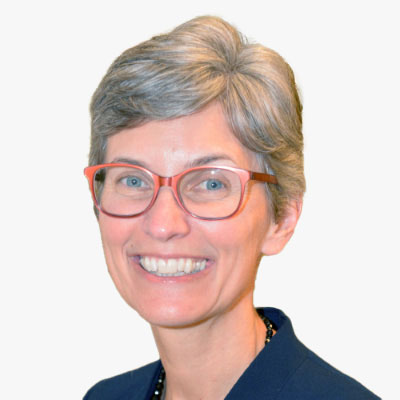
Deirdre Dalpiaz Bishop
Chief Geography Division | U.S. Census Bureau | USA
Geospatial frameworks building effective geospatial infrastructure
Paul Janssen
Expert Geo-standards | Geonovum | The Netherlands
Standardisation as a governing mechanism

Ms. Killpack serves as the Deputy Associate Director for the Core Science Systems Mission Area within the U.S. Geological Survey (USGS). The Core Science System Mission Area (CSS) fulfills the role as the National Civilian Mapping Agency and is responsible for mapping the geologic, geographic, and land features of the United States. The CSS conducts detailed surveys and distributes high-quality and highly accurate topographic, geologic, hydrographic, and biogeographic maps and remotely sensed data to the public. As Deputy Associate Director, Ms. Killpack provides leadership for the science planning and direction of the Mission Area. Ms. Killpack also leads the development, management, and coordination of program activities which include the National Geospatial Program (NGP), the Federal Geographic Data Committee (FGDC), the National Cooperative Geologic Mapping Program (NCGMP), the Science Analytics and Synthesis (SAS) Program, the National Geological and Geophysical Data Preservation Program (NGGDPP), and the National Land Imaging Program. Ms. Killpack previously served as the Deputy Director of the USGS National Geospatial Technical Operations Center (NGTOC) providing senior level oversight for the Center including workforce planning and execution, administration and facilities support, labor-management relations, and training and communication. Before working for the USGS, Ms. Killpack also worked for the Department of the Interior National Park Service as the GIS Coordinator for the Intermountain Region, SWCA, Inc. as the GIS Director, and the National Oceanic and Atmospheric Administration (NOAA) Pacific Services Center as the Geospatial Technology Coordinator. She holds a B.S. in Material Science from University of North Carolina Chapel Hill and a M.S. in Environmental Monitoring from University of Wisconsin Madison.
Darcee Killpack
 Darcee Killpack
Deputy Associate Director for Core Science Systems , U.S. Geological Survey , USA
Darcee Killpack
Deputy Associate Director for Core Science Systems , U.S. Geological Survey , USA
Ms. Killpack serves as the Deputy Associate Director for the Core Science Systems Mission Area within the U.S. Geological Survey (USGS). The Core Science System Mission Area (CSS) fulfills the role as the National Civilian Mapping Agency and is responsible for mapping the geologic, geographic, and land features of the United States. The CSS conducts detailed surveys and distributes high-quality and highly accurate topographic, geologic, hydrographic, and biogeographic maps and remotely sensed data to the public. As Deputy Associate Director, Ms. Killpack provides leadership for the science planning and direction of the Mission Area. Ms. Killpack also leads the development, management, and coordination of program activities which include the National Geospatial Program (NGP), the Federal Geographic Data Committee (FGDC), the National Cooperative Geologic Mapping Program (NCGMP), the Science Analytics and Synthesis (SAS) Program, the National Geological and Geophysical Data Preservation Program (NGGDPP), and the National Land Imaging Program. Ms. Killpack previously served as the Deputy Director of the USGS National Geospatial Technical Operations Center (NGTOC) providing senior level oversight for the Center including workforce planning and execution, administration and facilities support, labor-management relations, and training and communication. Before working for the USGS, Ms. Killpack also worked for the Department of the Interior National Park Service as the GIS Coordinator for the Intermountain Region, SWCA, Inc. as the GIS Director, and the National Oceanic and Atmospheric Administration (NOAA) Pacific Services Center as the Geospatial Technology Coordinator. She holds a B.S. in Material Science from University of North Carolina Chapel Hill and a M.S. in Environmental Monitoring from University of Wisconsin Madison.

Ms. Killpack serves as the Deputy Associate Director for the Core Science Systems Mission Area within the U.S. Geological Survey (USGS). The Core Science System Mission Area (CSS) fulfills the role as the National Civilian Mapping Agency and is responsible for mapping the geologic, geographic, and land features of the United States. The CSS conducts detailed surveys and distributes high-quality and highly accurate topographic, geologic, hydrographic, and biogeographic maps and remotely sensed data to the public. As Deputy Associate Director, Ms. Killpack provides leadership for the science planning and direction of the Mission Area. Ms. Killpack also leads the development, management, and coordination of program activities which include the National Geospatial Program (NGP), the Federal Geographic Data Committee (FGDC), the National Cooperative Geologic Mapping Program (NCGMP), the Science Analytics and Synthesis (SAS) Program, the National Geological and Geophysical Data Preservation Program (NGGDPP), and the National Land Imaging Program. Ms. Killpack previously served as the Deputy Director of the USGS National Geospatial Technical Operations Center (NGTOC) providing senior level oversight for the Center including workforce planning and execution, administration and facilities support, labor-management relations, and training and communication. Before working for the USGS, Ms. Killpack also worked for the Department of the Interior National Park Service as the GIS Coordinator for the Intermountain Region, SWCA, Inc. as the GIS Director, and the National Oceanic and Atmospheric Administration (NOAA) Pacific Services Center as the Geospatial Technology Coordinator. She holds a B.S. in Material Science from University of North Carolina Chapel Hill and a M.S. in Environmental Monitoring from University of Wisconsin Madison.
Deputy Associate Director for Core Science Systems | U.S. Geological Survey | USA
U.S. National spatial data infrastructure

Mr. Sumit Gera is the Senior Director of Canadian Geospatial Data Infrastructure (CGDI) division of Canadian Centre for Mapping and Earth Observation (CCMEO), Department of Natural Resources. He holds Bachelor of Commerce degree honours from Carleton University with a specialization in finance. He has extensive experience in audit, business valuations and mergers and acquisitions. In his past roles, he acted as a lead Canadian negotiator on Climate Change files.
Sumit Gera
 Sumit Gera
Senior Director of Canadian Geospatial Data Infrastructure (CGDI) , CCMEO, Department of Natural Resources , Canada
Sumit Gera
Senior Director of Canadian Geospatial Data Infrastructure (CGDI) , CCMEO, Department of Natural Resources , Canada
Mr. Sumit Gera is the Senior Director of Canadian Geospatial Data Infrastructure (CGDI) division of Canadian Centre for Mapping and Earth Observation (CCMEO), Department of Natural Resources. He holds Bachelor of Commerce degree honours from Carleton University with a specialization in finance. He has extensive experience in audit, business valuations and mergers and acquisitions. In his past roles, he acted as a lead Canadian negotiator on Climate Change files.

Mr. Sumit Gera is the Senior Director of Canadian Geospatial Data Infrastructure (CGDI) division of Canadian Centre for Mapping and Earth Observation (CCMEO), Department of Natural Resources. He holds Bachelor of Commerce degree honours from Carleton University with a specialization in finance. He has extensive experience in audit, business valuations and mergers and acquisitions. In his past roles, he acted as a lead Canadian negotiator on Climate Change files.
Senior Director of Canadian Geospatial Data Infrastructure (CGDI) | CCMEO, Department of Natural Resources | Canada
Canadian geospatial infrastructure & innovation

Degree in Geological Sciences and with a PhD in Geodynamics, he has been Senior Researcher at ISPRA since 2005; from 1998 to today he has been involved in the management and development of Geographical Information Systems, SDI and technological infrastructures and has designed various databases and web applications for sharing, analyzing and validating data quality.
Since 2018 he has been technical manager of the National Environmental Information System which represents the national hub of Spatial and Environmental data, while since 2013 he has represented Italy at the European Commission for the INSPIRE Directive and is therefore technical manager of the National Spatial Information Infrastructure and Monitoring Environmental.
Carlo Cipolloni
 Carlo Cipolloni
Information System & INSPIRE Unit Head , ISPRA DG-SINA (Division for the National Environmental Information System) , Italy
Carlo Cipolloni
Information System & INSPIRE Unit Head , ISPRA DG-SINA (Division for the National Environmental Information System) , Italy
Degree in Geological Sciences and with a PhD in Geodynamics, he has been Senior Researcher at ISPRA since 2005; from 1998 to today he has been involved in the management and development of Geographical Information Systems, SDI and technological infrastructures and has designed various databases and web applications for sharing, analyzing and validating data quality.
Since 2018 he has been technical manager of the National Environmental Information System which represents the national hub of Spatial and Environmental data, while since 2013 he has represented Italy at the European Commission for the INSPIRE Directive and is therefore technical manager of the National Spatial Information Infrastructure and Monitoring Environmental.

Degree in Geological Sciences and with a PhD in Geodynamics, he has been Senior Researcher at ISPRA since 2005; from 1998 to today he has been involved in the management and development of Geographical Information Systems, SDI and technological infrastructures and has designed various databases and web applications for sharing, analyzing and validating data quality.
Since 2018 he has been technical manager of the National Environmental Information System which represents the national hub of Spatial and Environmental data, while since 2013 he has represented Italy at the European Commission for the INSPIRE Directive and is therefore technical manager of the National Spatial Information Infrastructure and Monitoring Environmental.
Information System & INSPIRE Unit Head | ISPRA DG-SINA (Division for the National Environmental Information System) | Italy
Is the gki sufficient to provide data experience to stakeholders?

Dmytro Makarenko is an international relations specialist with more than 12 years of experience in various government positions.
In 2014 joined to the team of State Service of Ukraine for Geodesy, Cartography and Cadastre, where he acted on various positions and was responsible and supported the policy formulation of National Spatial Data Infrastructure in Ukraine, initiated and managed numerous international projects in geospatial data, land management and capacity development.
During this period, he was responsible also for the international representation of Ukraine on behalf of the StateGeoCadastre, participating and sharing of the Ukraine's progress and experience in the geospatial data development.
Starting from Oct 2020 as a member of NSDI developers team from Research Institute of Geodesy and Cartography supported the ongoing geospatial process in the country which resulted in launching of the NSDI pilot geoportal.
Dmytro also acted as NSDI Advisor to international experts' team (USAID and Norway Mapping Authority) and provided the consultancy in the geospatial sector, particularly in conducting the IGIF assessment and country action plan for Ukraine and contributed to the agenda of high level NSDI Council in Ukraine.
Dmytro Makarenko
 Dmytro Makarenko
Deputy Chairman , StateGeoCadastre , Ukraine
Dmytro Makarenko
Deputy Chairman , StateGeoCadastre , Ukraine
Dmytro Makarenko is an international relations specialist with more than 12 years of experience in various government positions.
In 2014 joined to the team of State Service of Ukraine for Geodesy, Cartography and Cadastre, where he acted on various positions and was responsible and supported the policy formulation of National Spatial Data Infrastructure in Ukraine, initiated and managed numerous international projects in geospatial data, land management and capacity development.
During this period, he was responsible also for the international representation of Ukraine on behalf of the StateGeoCadastre, participating and sharing of the Ukraine's progress and experience in the geospatial data development.
Starting from Oct 2020 as a member of NSDI developers team from Research Institute of Geodesy and Cartography supported the ongoing geospatial process in the country which resulted in launching of the NSDI pilot geoportal.
Dmytro also acted as NSDI Advisor to international experts' team (USAID and Norway Mapping Authority) and provided the consultancy in the geospatial sector, particularly in conducting the IGIF assessment and country action plan for Ukraine and contributed to the agenda of high level NSDI Council in Ukraine.

Dmytro Makarenko is an international relations specialist with more than 12 years of experience in various government positions.
In 2014 joined to the team of State Service of Ukraine for Geodesy, Cartography and Cadastre, where he acted on various positions and was responsible and supported the policy formulation of National Spatial Data Infrastructure in Ukraine, initiated and managed numerous international projects in geospatial data, land management and capacity development.
During this period, he was responsible also for the international representation of Ukraine on behalf of the StateGeoCadastre, participating and sharing of the Ukraine's progress and experience in the geospatial data development.
Starting from Oct 2020 as a member of NSDI developers team from Research Institute of Geodesy and Cartography supported the ongoing geospatial process in the country which resulted in launching of the NSDI pilot geoportal.
Dmytro also acted as NSDI Advisor to international experts' team (USAID and Norway Mapping Authority) and provided the consultancy in the geospatial sector, particularly in conducting the IGIF assessment and country action plan for Ukraine and contributed to the agenda of high level NSDI Council in Ukraine.
Deputy Chairman | StateGeoCadastre | Ukraine
Global geospatial frameworks enabling the geospatial ecosystem development in ukraine

Mohamed Amine Ben Rhaiem is a GIS developer,analyst and an active member in the Tunisian national SDI project. He got his master degree in GIS from PARIS 1 SORBONNE in 2017. Since August 2022, He is the head department of geospatial application development and scientific methodologies in the national center of mapping and remote sensing in Tunisia (CNCT). Now, he is coordinating the scientific project "The big spatiotemporal data at the service of an intelligent and sustainable city" which aims to develop a model of a digital twin city in Bizerte in Tunisia.
Mohamed Amine Ben Rhaiem
 Mohamed Amine Ben Rhaiem
Head of department, geospatial application development and scientific methodologies , National Centre of Mapping and Remote Sensing (CNCT) , Tunisia
Mohamed Amine Ben Rhaiem
Head of department, geospatial application development and scientific methodologies , National Centre of Mapping and Remote Sensing (CNCT) , Tunisia
Mohamed Amine Ben Rhaiem is a GIS developer,analyst and an active member in the Tunisian national SDI project. He got his master degree in GIS from PARIS 1 SORBONNE in 2017. Since August 2022, He is the head department of geospatial application development and scientific methodologies in the national center of mapping and remote sensing in Tunisia (CNCT). Now, he is coordinating the scientific project "The big spatiotemporal data at the service of an intelligent and sustainable city" which aims to develop a model of a digital twin city in Bizerte in Tunisia.

Mohamed Amine Ben Rhaiem is a GIS developer,analyst and an active member in the Tunisian national SDI project. He got his master degree in GIS from PARIS 1 SORBONNE in 2017. Since August 2022, He is the head department of geospatial application development and scientific methodologies in the national center of mapping and remote sensing in Tunisia (CNCT). Now, he is coordinating the scientific project "The big spatiotemporal data at the service of an intelligent and sustainable city" which aims to develop a model of a digital twin city in Bizerte in Tunisia.
Head of department, geospatial application development and scientific methodologies | National Centre of Mapping and Remote Sensing (CNCT) | Tunisia
Big spatiotemporal data for a smart and resilient city array(focus on geospatial data management)





